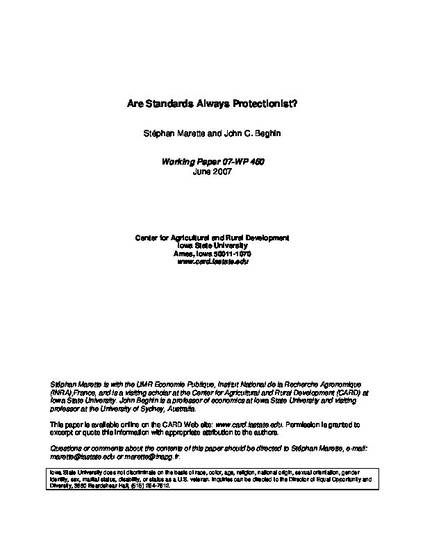
We analyze the effect of heterogeneity of foreign and domestic producers on product standard and investigate whether the standard chosen by the welfare-maximizing policymaker is protectionist. In a partial-equilibrium set-up, both domestic and foreign producers compete in selling a product in the domestic market, in the presence of consumption externalities. The policymaker chooses a minimum domestic standard that has to be met by both domestic and foreign producers. Protectionism occurs when the welfare-maximizing domestic standard is higher than the international standard maximizing welfare inclusive of foreign profits. We show that the standard is anti-protectionist when foreign producers are much more efficient at addressing the externality than are domestic producers. Possible exclusion of domestic or foreign producers arises with large standards, which may alter the classification of a standard as protectionist or non-protectionist. The paper identifies multiple caveats for the estimation of tariff equivalents of nontariff barriers.
Available at: http://works.bepress.com/john-beghin/113/

This is a working paper of an article from Review of International Economics 18 (2010): 179, doi:10.1111/j.1467-9396.2009.00856.x